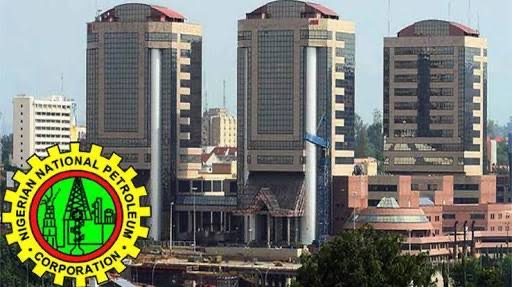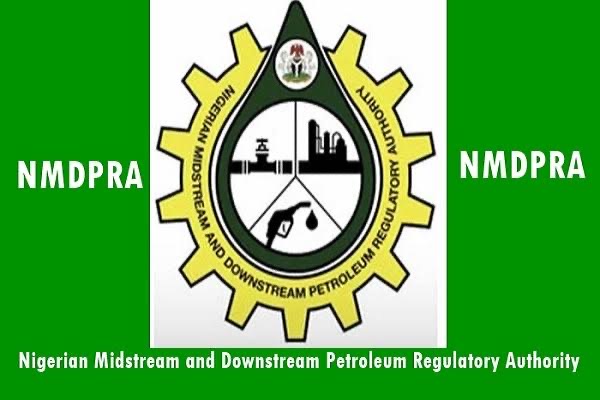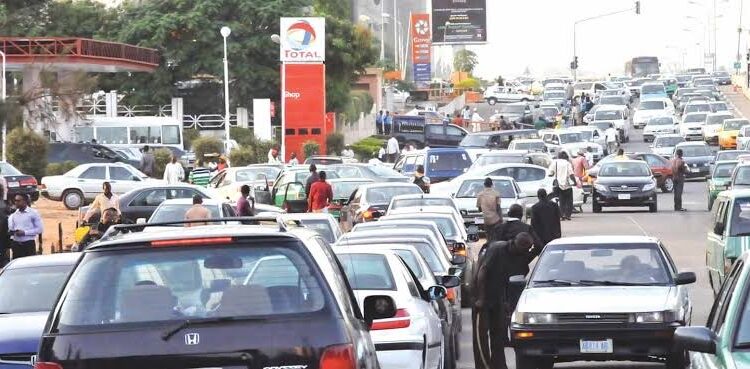Long queues were found in Lagos and its environs yesterday as many independent oil traders without petrol closed their petrol stations to motorists and other customers.
Investigations by Journalists revealed that the closure of many independent outlets has led to long queues at petrol stations operated by major oil retailers and NNPC Ltd that are open to customers.
However, NNPC Ltd and major oil trading companies kept the price relatively low at N580 per litre while a few independent oil trading companies sold the product at N850-N970 per litre depending on the location.
Further investigations revealed that transport costs have increased significantly in Lagos, Ogun, and other states as drivers have passed on the cost to commuters.
The cost of traveling from Ikorodu to Lekki in Lagos now costs about N5,000, a distance that used to cost about N3,000 before the shortage. It emerged that officials of the Nigeria Midstream and Downstream Petroleum Regulatory Agency (NMDPRA) were not physically present at the petrol stations to monitor activities, leading to intimidation of consumers.

The agency is responsible for regulating and monitoring midstream and downstream operations in Nigeria, determining appropriate tariff structures, and establishing cost benchmarks for midstream and downstream operations.
It shall also advise the government and stakeholders on commercial matters related to tariff and pricing frameworks, regulate pipelines for bulk storage, distribution, sale, and transportation of petroleum products, and monitor and enforce compliance with the conditions of licenses, permits, and approvals issued by the state.
However, NNPCL Vice President (Downstream), Dapo Segun, said rain, thunder, and lightning were to blame for the fuel shortage.
Speaking at a press conference at the NNPC Towers, he said, “We apologize to Nigerians for the fuel queues. Many of the challenges we’re facing are outside our control, but we’re doing our best to address them.
“The recent rains have made the Estravos channel difficult to navigate due to siltation, which has significantly hindered our ability to transport petroleum products, especially PMS, across the country.”

He said lightning and thunderstorms had halted fuel transportation, adding that the poor state of roads in the country further exacerbated the situation.
Similarly, the President of the Nigerian Association of Senior Petroleum and Natural Gas Officials, Pengassan, Engineer. Festus Osifo, who is also the chairman of the Trade Union Congress TUC, blamed Nigeria’s current economic woes on government policies, especially the floating currency.
Eng. Osifo stated the above in his address at the 3rd PENGASSAN Energy and Labour Summit on Wednesday in Abuja with the theme: “The future of Nigeria’s oil and gas industry: Energy mix, energy security, artificial intelligence, divestment, and crude oil theft.”

He said, “A country that cannot meet its energy needs or guarantee energy availability for its citizens is on the path of becoming a failed state.
“As an Association, we have mounted the rostrum over time, both on the streets and in the boardroom, to champion this cause, and we will not relent until victory is certain.
“As we gather here, let us not lose sight of the broader state of our nation. Nigeria stands at crossroads, and our actions and decisions here in the next few days will provide a framework for a policy trust for government towards shaping the economic outlook of our country.”
“It is incumbent upon us to drive positive change, foster economic growth, and ensure our people’s prosperity. Recent policy directions by the government have placed untold hardship on Nigerians.
“Chief among them is the flotation cum devaluation of the naira, which saw our currency slide from N450 officially in May 2023 to the current exchange rate of about N1600.
“This is the reason the landing price of PMS today is over N1,000 (reintroduction of subsidy), the reason AGO is selling for over N1,300, and the reason all Imported commodities are over the roof today. The overarching impact of this on Nigerians can only be imagined than experienced.”
































